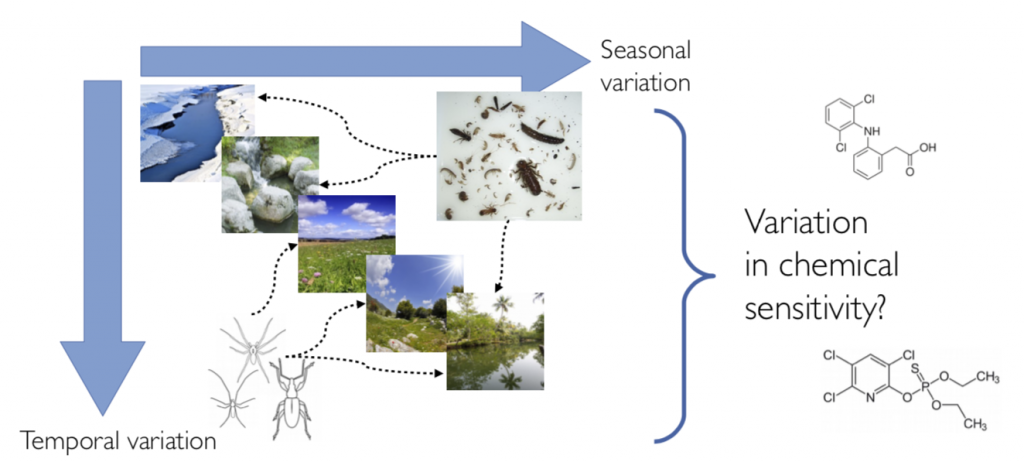In this post, Ralf B. Schäfer talks about their new project “Assessing spatial and temporal variability in species assemblages and potential implications for chemical risk assessments”.
We all know that insect and plant communities differ strongly across Europe and that the main drivers of community composition are climate and altitude. But is this relevant for chemical risk assessment? Are there differences in the chemical sensitivity across communities from different climatic regions? Can we establish typical communities for the different environmental gradients associated with biogeography? These are open questions our project will, at least partly, answer.
Current chemical risk assessment largely follows a one-size-fits-all approach, focusing on sensitive single species tests or multispecies test systems. However, real world communities vary in their composition over space and time and so may their sensitivity towards a chemical. Depending on the variability in sensitivity, the use of a single effect threshold can result in over- and underprotection. Hence, knowledge on this variability is pivotal for an efficient risk assessment.

In the GETREAL project, a consortium lead by Ralf B. Schäfer, will explore the questions above to characterize variation in chemical sensitivity across Europe and evaluate the consequences for chemical risk assessment. To achieve this aim, the consortium will:
- Classify European landscapes and identify typical assemblages to establish ecological scenarios regarding chemical sensitivity
- Compare tools to infer the chemical sensitivity for species and develop related models
- Conduct ecotoxicological experiments to close data gaps and to validate ecological scenarios
- Link assemblages, ecosystem functions and services with an ecological model
- Integrate the results into framework for chemical risk assessment
The consortium consists, besides Ralf B. Schäfer, of Martin Entling, Paul van den Brink, Frederik de Laender and Lorraine Maltby. The project is funded by the CEFIC Long Range Initiative and will start in March/April 2019. If you are interested to contribute to the project (e.g. research project course, M.Sc. thesis or similar) get in touch with Ralf B. Schäfer or Martin Entling.
